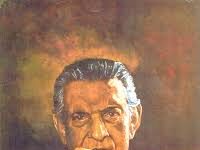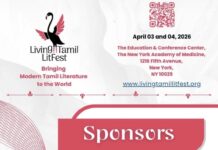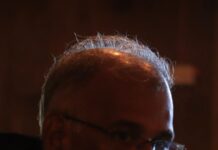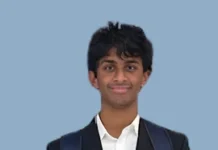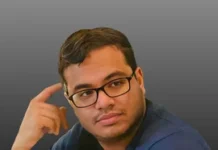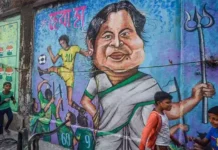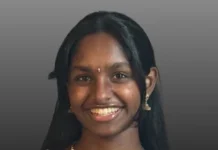 I always love to be with me alone. From an early age, I was a dreamer. I found reading brings me new themes and lands to dream; later, I learned to create my own themes and lands to dream. I used to say this: My writing is ‘dreaming in language’.
I always love to be with me alone. From an early age, I was a dreamer. I found reading brings me new themes and lands to dream; later, I learned to create my own themes and lands to dream. I used to say this: My writing is ‘dreaming in language’.
Dreams have no language; they are random collections of images and metaphors. Good literature is very close to a dream; the difference is it is happening in language. It seems like a small thing, but it makes a tremendous difference.
Language, according to Nataraja Guru, is a dynamic structure that encompasses infinite inner structures. Langue and parole are independent structures that rely on one another. According to Sanskrit linguistics, we have a more intricate understanding of these layers of language. Vighari, which is synonymous with parole, denotes the auditory aspect of language. The expressed version of language. Madhyama is the meaning structure of language. It resides in the intellect of language users, and it bears similarities to the concept of langue in western linguistics. Pasyanthi is the total meaning system of language. It consists of millions of madhyamas. It is timeless and spaceless. It is the ocean of meaning, and we are actually fish living in it. Para is the cosmic language; it consists of the languages and meanings of all living beings, including bacteria and viruses. Our language exists as a mere bubble within this vast ocean.
Literature is a structure inside language, and every literary piece is an independent structure. Every reading on it is a different structure; we are creating innumerable structures inside us—Nataraja Guru names it structuralism. We are creating and altering structures continuously. But we can’t think or understand without structures. Dreams have their own structure, but we always try to restructure them according to our consciousness.
Since language is a structure and literature is another structure, dreaming in language is actually a “structured dream.” It is not an automatic or natural activity. It is a ‘creation’ and it is an ‘art.’ The word art implies the meaning that it is a talent; yes, art and literature always have that unavoidable element of craft.
‘Natural’ and ‘uncontrolled’ art do not exist. Without ‘craft’, there is no art. Art is the highest form of craft. Artist starts from the peak of craft, all great artists are exceptional craftsmen. Craft means the training and talent in the form of the art. In literature, there are numerous forms such as novels, short stories, poems, and verses. A writer has to learn the craft of these forms.
I remember my early struggle to master the craft of writing. I was constantly striving to align my aspirations with the framework of various literary forms. We used to call it an ‘attempt to find one’s own language’. Then I became an expert in it. When I master the craft, I forget about it. I no longer worry about the form of my work. I allow them to bloom automatically. I always wait for inspiration, and when I get it, it naturally transforms into an art piece.
Now, writing comes naturally to me. I just sit and dream in language. I never try to fathom dreams with my forms. Currently, the form serves as an ideal medium for capturing my dreams. Now I can dream only in the form of a novel or short story. I used to dream while I was traveling. Sitting in the aisle seat of a train and watching the landscape slip by is the best way to meditate and dream. However, my dreams tend to revolve around short stories and novels. I used to completely engross them in my mind, only to forget them once I arrived at my destination.
Let me put it this way: forgotten things hold immense power. I forgot the forms of literature.

